What I Received:
The package arrived securely in a box including the following curriculum, literature, and manipulatives:
- Online Poppy Language Arts Unit Guide
- Poppy written by Avi
- Owl Kit
- Hard Copy Life Cycles Science Unit Guide
- Green Earth Butterfly Kit
- Who Eats What? written by Patricia Lauber
- What Is a Life Cycle? written by Bobbie Kalman
You MIGHT Need:
- You will need to purchase the caterpillar larvae for the Science Life Cycle unit. This was Alyssa's favorite Science activity! The cost can vary depending on where you purchase the caterpillars. I also suggest purchasing the caterpillar larvae in advance, because it can take some companies 2-3 weeks for delivery. Our larvae arrived in about one week which is another aspect that will vary depending on the company and your location.
- Access to a set of encyclopedias, the Internet, and/or planning time to find informational books to check out at the library for independent research.
- The curriculum would be considered complete once you add a math curriculum. Click here to see the company's math curricula recommendations.
- Depending on your child and their needs you may want to add a reading (phonics) and spelling program for younger children utilizing this curriculum. Spelling is included in the program but it will depend greatly on your child's abilities and needs as to whether or not it will be beneficial to use that component. If you teach reading (phonics) and want to continue doing so to maintain skills, you'll need to decide which curriculum to use. The company recommendations can be found here. If your child is reading chapter books fluently at this level, phonics may no longer be needed.
Comparing Guide Formats (Project Photos Included)
Hard Copy Guide
The Life Cycle Science softcover guide contained 124-pages spiral bound with a colorful cover. There were detailed lesson plans stating the big ideas and skills addressed within the unit. Facts and definitions for vocabulary words were also listed for the lessons. I appreciated the fact that the thorough lesson plans contained material lists. There were 9 lessons and a final project in the Life Cycle unit. The student activity pages for 2-4 activities per day with differentiated options provided for some activities were included as part of the guide. I was a little giddy when I saw differentiated options for activities, because it means the company wants to make sure all learners can learn the material in slightly different ways at their level. Several lessons may take up to two days to complete. Furthermore, the author tells you how to conclude the lesson. Life applications such as mini field trips or backyard explorations are included in the lesson plans which helps your child connect the concepts to "real life" experiences. There was an age level overview and summary of skills chart at the back of the book. Here are photos for several engaging activities from the Life Cycles unit.
Once we activated the online guide we were given immediate access for three months (90 days) to the materials in order to complete the unit. Unused or unactivated units do not expire. The online guide can be used on many mobile devices making lessons portable if you are traveling. The online guide's family license copyright enables the parent to print student activity pages for ALL children in the family. This helps families utilize the curriculum to its full potential with multiple children. One convenient feature of the online version is that it provides access to the clickable links related to the lessons. The online format costs a little less than the hard copy version and has a few more benefits including no shipping charges. I absolutely loved the ability to mark the lesson completed which is indicated by a line crossed through the lesson under the Table of Contents.
How Did We Use It?
Hard Copy Guide
The Life Cycle Science softcover guide contained 124-pages spiral bound with a colorful cover. There were detailed lesson plans stating the big ideas and skills addressed within the unit. Facts and definitions for vocabulary words were also listed for the lessons. I appreciated the fact that the thorough lesson plans contained material lists. There were 9 lessons and a final project in the Life Cycle unit. The student activity pages for 2-4 activities per day with differentiated options provided for some activities were included as part of the guide. I was a little giddy when I saw differentiated options for activities, because it means the company wants to make sure all learners can learn the material in slightly different ways at their level. Several lessons may take up to two days to complete. Furthermore, the author tells you how to conclude the lesson. Life applications such as mini field trips or backyard explorations are included in the lesson plans which helps your child connect the concepts to "real life" experiences. There was an age level overview and summary of skills chart at the back of the book. Here are photos for several engaging activities from the Life Cycles unit.
 |
| Butterfly Metamorphosis: Pasta Life Cycle Wheel |
 |
| Our Version of Jeff's Life Cycle Chart We borrowed photos since all of ours were in storage. This is how we adapted the lesson. The stages are written on index cards. |
 |
| Comparing Two Human Life Cycle Charts I figured out how to scan the borrowed photos for this project. |
 |
| Food Chain and Interdependence Activity I used colored dots on cups instead of wrapping paper bands. |
Online Guide
The Poppy Language Arts online guide presents the same lesson plan format, however there are a few differences worth pointing out. The table of contents is organized by main topics from the book. The child reads two chapters each lesson. Each lesson contains discussion questions with some answers provided. The child may be asked to journal before or after reading. The language arts activities (3-6) follow the discussion before concluding the lesson. There is access to a complete reading materials list, summary of skills, student pages, and reading question printables. The guide includes twelve lessons and a culminating project. The guide must be read at the computer and the student worksheets are available in PDF format. I was able to access the spelling component online and see a list of vocabulary and review terms. Once we activated the online guide we were given immediate access for three months (90 days) to the materials in order to complete the unit. Unused or unactivated units do not expire. The online guide can be used on many mobile devices making lessons portable if you are traveling. The online guide's family license copyright enables the parent to print student activity pages for ALL children in the family. This helps families utilize the curriculum to its full potential with multiple children. One convenient feature of the online version is that it provides access to the clickable links related to the lessons. The online format costs a little less than the hard copy version and has a few more benefits including no shipping charges. I absolutely loved the ability to mark the lesson completed which is indicated by a line crossed through the lesson under the Table of Contents.
Moving Beyond the Page was used with my five-year-old daughter who is capable of reading 3-4th grade chapter books with pretty good comprehension and great fluency. She has some experience with writing compositions and journal responses containing 3-4 sentences while staying on topic. Alyssa is younger than the intended age range, but she works above her age or grade level and meets the prerequisites mentioned on the website.
We attempted to complete two full lessons (one Language Arts and one Science) 4-5 times a week on a daily basis. There were a few days that we fell behind especially with regards to science due to the number of activities suggested and big concepts covered. I intended on spending 2 1/2 to 3 hours per day using the curriculum in addition to math. However, we ended up spending the entire day working through the activities with necessary breaks. Math took a backseat for the majority of the review. Most days she would read independently. She would almost always ask me to read the chapter aloud, because she enjoyed the story and didn't want me to miss anything. The online guide was used on a MAC computer.
I gathered and organized many of the supplies necessary for each lesson in a tub. MOST of the materials are items we already had on hand. I alternated active and passive activities so that my daughter would not have to sit for long periods at a time. She has a long attention span, but I want to keep things as interesting and engaging as possible. Switching up reading, writing, and science experiments helped keep the lessons flowing while providing brain breaks.
Our Experiences
Alyssa adored the high quality literature books included in our package. She looks forward to reading the entire Poppy series written by Avi. Alyssa thought Ereth's use of alliterations were hilarious! She's already halfway through the third book in the series. We have several of the Let's Read and Find Out Science books and appreciate the informative content. The Science of Living Things series is also a wonderful set of non-fiction books.
What I Liked
Possible Suggestions
Pricing
Curricula products are available in either hard copy or online format. They offer a variety of package options with various prices on their website. Check the Moving Beyond the Page website for pricing on complete full year packages and more.
Language Arts Poppy Package can be purchased for $29.97
Language Arts Poppy ONLINE Package is available for $25.91
Science Life Cycles Package costs $45.92
Science Life Cycle ONLINE $41.86
Note: If you have more than one child using these units, then you can purchase an additional set of consumable student activity pages separately for $4.99 each.
Please visit the Schoolhouse Review Crew blog to read more Moving Beyond the Page reviews addressing a variety of language arts, science, and social studies topics while covering different age ranges.

We attempted to complete two full lessons (one Language Arts and one Science) 4-5 times a week on a daily basis. There were a few days that we fell behind especially with regards to science due to the number of activities suggested and big concepts covered. I intended on spending 2 1/2 to 3 hours per day using the curriculum in addition to math. However, we ended up spending the entire day working through the activities with necessary breaks. Math took a backseat for the majority of the review. Most days she would read independently. She would almost always ask me to read the chapter aloud, because she enjoyed the story and didn't want me to miss anything. The online guide was used on a MAC computer.
I gathered and organized many of the supplies necessary for each lesson in a tub. MOST of the materials are items we already had on hand. I alternated active and passive activities so that my daughter would not have to sit for long periods at a time. She has a long attention span, but I want to keep things as interesting and engaging as possible. Switching up reading, writing, and science experiments helped keep the lessons flowing while providing brain breaks.
Our Experiences
What I Liked
- I can honestly say we FINALLY found a curriculum that truly challenges my daughter. This program allowed her to reach her potential yet did not cause frustration.
- This is a comprehensive language arts and science curricula addressing a variety of learning modalities. The lessons are thought-provoking and require children to think critically about the concepts and how they apply to their life.
- I loved the fact that the reading comprehension questions could be used as journal questions OR as discussion topics. I chose to use the questions as discussion topics, but tried to give Alyssa at least one or two journal topics to write about each day. If the introductory paragraph didn't contain a journal question, then I chose one of the discussion questions.
- The well-organized curriculum was flexible enough to allow adaptations to accelerate or slow down the lessons. The program can be easily adapted for younger children by writing their responses or reading aloud the books. You can always allow your child to type responses. You can easily enrich or extend the lessons if you had more time. A wonderful way to extend lessons for enrichment would be to use more literature, related experiments, nomenclature cards, notebooking pages, and lapbooking. Although extensions are definitely NOT necessary, because this curriculum is very thorough.
- The lessons were research and writing intensive which may be a possible con for your child depending on their learning styles and interests. Alyssa enjoys researching concepts especially if it has to do with animals. The program is also project-based which means your child will participate in hands-on activities and projects which tend to motivate learning and increase interest in the topic.
- The literature book sparked some great conversations as we discussed the story elements, story structure, genre, main idea, and characterization. The plot was intriguing and maintained her attention for the duration of the book.
- I appreciated the fact that each unit had a culminating project for the child to complete. It allows the child to use their creativity and apply the skills learned into one project. It is definitely a better way to assess her knowledge rather than giving her another paper-based test. She enjoyed showing or “teaching” us what she learned. Her presentations to the family were clear and thoroughly detailed which tells me that she did indeed pay attention and retained the information over time.
- There may be too many activities or too many relevant concepts covered in depth for one sitting. I believe the number of activities could be spread out even further. If your child has perfectionistic tendencies or if your children are independent writers, researchers, thinkers, and readers then this curriculum may take longer than 2 1/2 hours per day. Alyssa insisted on writing and doing EVERYTHING herself. Since the program is writing intensive, research intensive, and project-based it took us much longer to complete assignments in the allotted time frame.
- The hand drawn printables appeared unclear or fuzzy when printing from the online guide. However, I am grateful that the black and white printables do not use a lot of ink.
- The final Language Arts projects are Think-Tac-Toes. The activities may require parental assistance and a quick mini lesson such as how to write an acrostic poem or how to complete a plot diagram since they are not taught during the unit. It is assumed that children have exposure to these types of activities. I would recommend that parents have a premade example for a different story ready to show their children.
- The owl pellet included in the kit sent was very small and crumbled into tiny pieces as soon as we opened it making it difficult to differentiate the broken bones. I have done owl pellet dissections in the past and find it easier to use the larger pellets with children in this age range. I eventually ended up using a much larger pellet we had on hand from a previous unit to redo the pellet dissection activity. On the plus side, the kit does include a mini hand magnifier and plastic forceps. This was her favorite Language Arts activity! I love how science was integrated into her literature lessons!
- I would absolutely love to see more literature selections added to the science unit. These could be in the form of suggested introductory read alouds that grab the child's attention based on the daily science concept for each lesson. Additional books could be used by the parent to model project examples for children to help them gain an understanding of how to approach the lesson assignment independently.
- I was a little disappointed with the spelling component. The words weren't very challenging for my daughter. We eventually ended up not using the spelling words or activities suggested. We would occasionally use the vocabulary words as spelling words to make it even more challenging. The spelling activities reminded me of those I have seen used quite often in the classroom setting. Could you possibly provide a differentiated spelling list for each lesson either focusing on rules or concept words with a variety of suggested activities for practice?
- I would consider adding completed diagram and chart examples in the guide for parents that may not have experience with these forms.
It was an absolute delight to review this product! I was definitely impressed with the depth of the concepts and lessons taught. Moving Beyond the Page focused on higher order thinking skills, problem solving, and creativity. I was thrilled to find a curriculum that actually did challenge Alyssa. She was retaining and internalizing the material at a much deeper level than I expected. If I were to continue using this curriculum, then I would SLOW things down so that we could have time to enrich and extend the lessons based on her interests. I might even pick and choose activities to complete. I found several Internet resources related to the units to use as extensions at the Forum and through Idea Share.
I noticed my daughter applying what she learned in real life. She verbalized the vocabulary quite often. For example, one day Alyssa asked me to come inside her room. Apparently, she assigned her Barbie dolls the protagonist and antagonist roles in her own story complete with a plot. She said, "My story is a fantasy because it contains magic, a wicked witch, and talking pets."
This program would be a wonderful supplement to any curricula. It would also be a great stand alone curricula to prevent summer "brain drain" or learning loss should you decide to customize by only purchasing individual units. I only wish I could afford the full curriculum package for the entire academic year. The price range is out of my league right now even though it is very comparable to other comprehensive literature-based curricula. Although, I am thinking about purchasing a literature unit to utilize during the summer.
Recommendations
I HIGHLY recommend Moving Beyond the Page for ALL children especially if you are a homeschool family needing a more challenging curriculum. Individuals that implement a literature-based, unit study, or delight-directed approach to teaching may be interested in this curriculum. I noticed my daughter applying what she learned in real life. She verbalized the vocabulary quite often. For example, one day Alyssa asked me to come inside her room. Apparently, she assigned her Barbie dolls the protagonist and antagonist roles in her own story complete with a plot. She said, "My story is a fantasy because it contains magic, a wicked witch, and talking pets."
This program would be a wonderful supplement to any curricula. It would also be a great stand alone curricula to prevent summer "brain drain" or learning loss should you decide to customize by only purchasing individual units. I only wish I could afford the full curriculum package for the entire academic year. The price range is out of my league right now even though it is very comparable to other comprehensive literature-based curricula. Although, I am thinking about purchasing a literature unit to utilize during the summer.
Pricing
Curricula products are available in either hard copy or online format. They offer a variety of package options with various prices on their website. Check the Moving Beyond the Page website for pricing on complete full year packages and more.
Language Arts Poppy Package can be purchased for $29.97
Language Arts Poppy ONLINE Package is available for $25.91
Science Life Cycles Package costs $45.92
Science Life Cycle ONLINE $41.86
Note: If you have more than one child using these units, then you can purchase an additional set of consumable student activity pages separately for $4.99 each.
THANK YOU MOVING BEYOND THE PAGE!
Please visit the Schoolhouse Review Crew blog to read more Moving Beyond the Page reviews addressing a variety of language arts, science, and social studies topics while covering different age ranges.



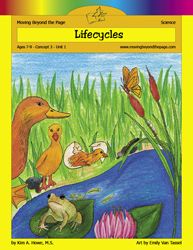













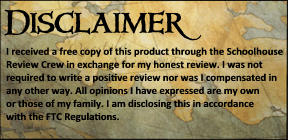

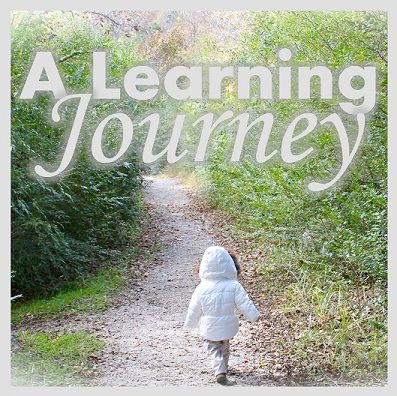






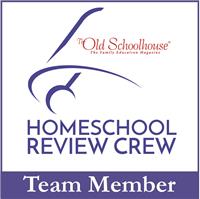
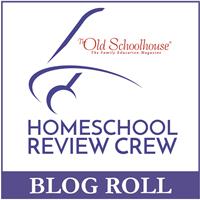





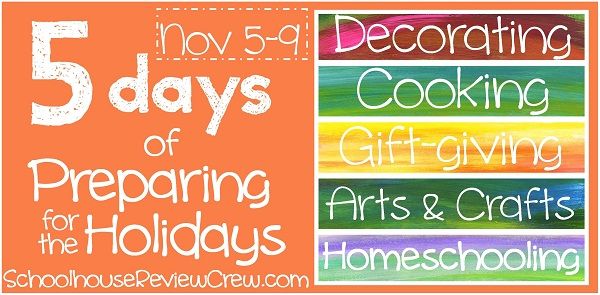
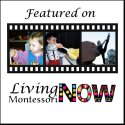
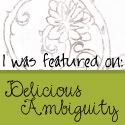
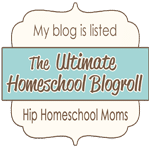
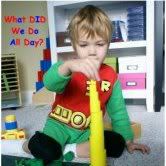



Very nice review! Alyssa is so cute. :-) The life cycle study looks really neat.
ReplyDeleteI'm so excited to start this year with MBtP! How long did shipping take for you? I ordered the full 6-8 package two weeks ago.
ReplyDeleteI can't remember how long the package took to arrive. Sorry. I would definitely contact the company and ask for a shipping update. I am sure they have great customer service. Will you be blogging about your experiences with Moving Beyond the Page? I would love to hear your thoughts on the 6-8 age level.
ReplyDelete